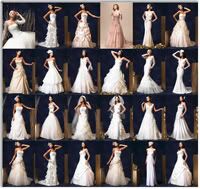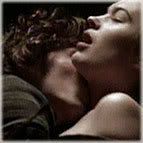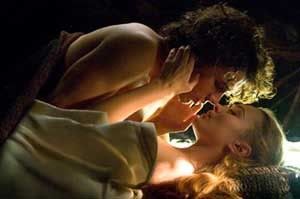All this time you were pretending, One of my erotica stories actually ends with the words ‘they lived happily ever after’. It’s a fairy tale, so it has to. All my ‘erotica’ ends well, whereas my other writing tends to end in death, desolation, mourning, tragedy, and bleak bitter triumph – but my other writing is also erotic, just not categorised as such. With erotica sliding increasingly towards erotic romance, the Happily Ever After question raises its dewy-eyed head with some peculiarly specific problems. In straight romance, the final resolution is when they get together, kiss / shag / marry / confess their undying love, and that’s about as Happily Ever After as we need. The plot challenge for the writer is inevitably how to keep the characters apart until this joyous union, while raising the sexual tension. In erotica, that’s more problematic. How do you keep your characters away from a romantic resolution until the end of the book while filling said book with swathes of horny sex? One trope is misunderstandings, but I’m impatient with that. If two characters can’t be bothered to sit down over a glass of wine, put away their egos and lay their cards on the table, they don’t deserve happiness and their relationship is probably doomed anyway. Another trope is having people who're incredibly attracted to each other but can't stand each other / fight passionately throughout the book, which is all a bit silly really. I prefer my erotic wine without cheese. There’s another problem. If the Heroine’s having sex with the Main Man, why is that not Happily Ever After? If not, who is she having sex with, and why is she, when she fancies this other bloke? What is the defining moment of ‘romantic resolution’ if not the long-awaited shag and confessions of love? A good writer (and all the Lustbiters are!) will resolve these within the nature of the individual plot: its singularity supercedes all ideas of ‘tropes’ and the characterisation dictates what Happily Ever After is for these two. All my happy endings took care of themselves, without being my primary story goal. The more we insist on romantic resolution as our major aim, however, the more we risk slipping into clichés. Is H.E.A. even what we want? Any sentence beginning “What women want is…” should be struck off the record and the culprit sent to do a proper representative survey of women around the world. Disney is not the international female ideal for narrative. What my female characters usually want, like Chaucer’s Wife of Bath, is sovereignty: power, authority, mastery. Their relationship lies alongside that, rather than coming first. Let’s duck out of ‘romance’ for a while, and look at other love-story plot-lines. Think of the epic tales: Tristan and Isolde; Romeo and Juliet; King Arthur, Guinevere, and Lancelot… The tragedy didn’t spoil these; it defined their resonant power. Guinevere and Lancelot’s doomed night together is doubly charged by its illicit nature and the looming discovery. Crying has never ruined a story for me. My definition of erotica is quite factual: stories with sex in. Not love-stories or romances, just stories. Most people have sex regularly and it usually does affect their lives and relationships. Including sex-scenes that are relevant to the plot is as easy as breathing. The plot itself could be drawn from fantasy, sci-fi, mystery, thrillers, crime, realism, anything at all, and sex will always be pertinent. Now that women are allowed to own property, vote, and work, love and marriage no longer define our lives: should they still define our stories? Or are there other more varied plots into which passion is woven as seamlessly as it is in life? Should erotica be borrowing from the romance genre or defining itself simply as quality writing that leaves the sex in?
So much for my happy ending…



Friday, April 20, 2007
And so they lived happily ever after.
Posted by
Megan Kerr
at
9:17 AM
![]()
Labels: fairytale, happy ending, olivia knight
Subscribe to:
Post Comments (Atom)

























10 comments:
Without wanting to be a bit of a downer, isn't all "happiness" contingent and ephemeral? I mean, even the longest lasting, strongest, most passionate love affair is going to end one day in death. There simply is no HEA in the sense that romance writers mean.
Real happiness isn't something you can achieve by getting anything - not the bloke, not married, not money or kids or fame or whatever it is you crave. Real happiness is something that has to grow inside and alongside you throughout your life. Like the empowerment you were talking about, Olivia.
(I think I'm actually talking about Actualisation rather than an emotional high that we normally call happiness.)
Sorry! This is so not the sort of thing I should be posting on this blog. It's all Olivia's fault for making me think.
I'll come back later when I've strimmed a few brambles and am in a less complex state of mind.
The Happy Ever After drives me bonkers, I have to admit. I don’t like it, I don’t want it---
No, that’s not strictly true. I do like it, and I do want it.
It’s just that I don’t want the safety net that it offers. I don’t want to pick up a book and know that – no matter how many arguments the MCs have, no matter how often they say they hate each other, no matter that one of them thinks the other one is dead/diseased/married, whatever, that they are inevitably going to get back together.
I want the tightrope. I want the fear that they might not.
I remember reading [name of book withheld by blogger because I don’t want to spoil for plot] and I was about 10 pages from the end, and it all looked completely bleak, and I suddenly had a panic attack – I checked the cover and the inside blurb and there was no “categorization” EEK! I thought, they are all going to die.. turns out I shouldn’t have worried, but it could have gone either way and that’s how I like it.
I know that a lot of readers – most in fact – like the HEA as a safety net but personally I don’t, and therefore I won’t read category romances for that reason.
I agree with Janine. All any author can provide is a “happy for now” unless you specifically say “and they lived happily ever after” or you do an epilogue cataloguing the future of your characters, (or you do sequels) then it’s up to the reader to decide whether after the final smooch/shag, one oparty doesn’t turn to the other and say “Well, that was fun, and well worth the £30 that Billy bet that I’d never get you to forgive me.”
I for one always wanted to know what happened after the curtain fell, Ingrid Bergman jumped off the plane and ran across the tarmac, Paul Henreid,said “Fuck the stars and moon, get your kit off” to Bette Davis, and Scarlett O Hara had a swift Gin and Tonic and found herself a toyboy.
Yikes, this is all clever stuff! I don't even know what a 'trope' is! LOL
I love romance. I love romance novels. I love 'happily ever after'. And tricky as it is, I do think it's possible to combine explicit erotic writing with *some* of the elements of a traditional romantic structure. I've always tried to, and I'll go on trying to, tough challenge that it is. But then, I came from trad romance to erotica in the first place, so I'm only going in a full [and slightly twisted] circle.
The thing is, too, I'm writing escapist fantasy that's fun for me and fun for the readers. There probably *isn't* a true HEA as per romantic fiction in real life, but when you're writing purely to entertain, you can always pretend there is. :)
Right... I'm off to look up the word 'trope'. I'm feeling decidedly thick at not being familiar with it. LOL
While you go look up "trope," Wendy, I'll blushingly admit I didn't even know what HEA stood for until we visited Romance by the Blog last fall.
I think my characters have always tended to wind up with happy endings. But I didn't know the term for it. Didn't even know the concept was required.
Hi Alison... Yes, I'd say the concept of HEA *is* required for a book to be called a romance in the modern commercial sense. I think it's more or less a deal breaker for romance readers, and I feel the same. If a book says 'romance' on it, it indicates there's going to be a HEA. Or at least the implication of it. I don't suppose it necessarily means conventional weddings and babies and stuff... but at least that the readers can believe the central couple in the book will remain together and be as happy as anybody can be...
Of course everything depends on whether you're writing 'erotica' or 'erotic romance', dunnit? If you're writing erotica, well, your female character can find her satisfying resolution at the end of the book however is best for her, and however you, the writer wants her to...
Me, well, I want to write 'erotic romance', so I'm just going to have to grapple with the cheese and the tropes as best I can! LOL
Brambles defeated.Forget face-cream and flowers:it takes sap and power-tools to keep me on an even keel.
I really like Erastes' point about the visible safety-net.
My second set of thoughts about writing HEA is as follows: for me there's a huge distinction between writing short stories and writing novels.
A short story is generally about a single sex-act and can have any theme at all, happy or unhappy, so long as it's hot. I can write horror/erotica - and have done. I hope the day never comes when we have to write HEA for short stories.
A novel is different. I am quite comfortable with a HEA because personally I don't tend to divorce sex and affection. And I'm actually a nice person (at least on alternate Wednesdays) and I like people to be happy. And I think sex should make us happy.
I know some other authors on this site have very different feelings, but I do prefer sex novels to end on a positive note.
BUT I also worry about the genre definition of HEA. I'll throw a screaming fit the day it has to mean marriage - or monogamy. I don't see why a happy ending can't mean a threesome, or independence, for the protagonists.
I think I differentiate a happy ending from an HEA - because happy endings come quite naturally to my erotica but thinking in terms of an HEA makes me seize up and wonder why on earth they wouldn't just get together, and stay together, from the moment they meet. As someone who's turned most of her one-night-stands into relationships of several years, the whole dance-and-game of getting together always somewhat eluded me... I never understood why you couldn't get to know someone and sleep with them at the same time, or why someone who's dying to get into your pants is a better indication of 'who they really are' than someone who has the sexually satisfied freedom to be themselves. Or maybe I'm just a horny little slapper and defend it with fine-sounding theory!
Yikes, I feel I’m about to get sacked. Based on Portia’s romance remit, can I apologise now to any readers who’ve bought my stuff expecting a HEA? My publishers classify me as Erotic Romance. I don’t. If I had my way, I’d describe most of my books as, erm, Dark Erotic Romance and Suspense With a Literary Edge and Some Goddamn Sexy Hoodlums. But I hear that genre doesn’t sell so well.
I’m with Erastes: I want the tightrope. I’m not into comfort reading. Sometimes I write happy, sometimes I don’t. I tend not to read books described as ‘fun’. I can’t help feeling a ‘fun’ book would emotionally skate right over me. I can understand short stories being fun but a novel would have to be very witty and subtle for me to find it amusing. When I read, I want to be emotionally engaged with the characters and ‘fun’ suggests ‘light’. I need darkness and suffering if I’m to get drawn in.
Happy endings, hmmm. I like Olivia’s distinction between HEA and HE, and, yeah, happiness is inevitably temporary. I think my female leads are mainly trying to understand themselves and their desires. They’re striving for self-knowledge, usually within the context of an intense, perplexing relationship. At the conclusion, they’ll know themselves better and they may or may not end up with the guy. In that sense, my endings are positive (-ish) if not traditionally happy or upbeat. Does that make it erotica? I don’t know. Erotica implies lots of emotionally disengaged shagging. That’s not what I write. Well, um, okay, sometimes I do because I find anonymity and detachment very hot and slutty. But the central relationship has to have heart, even if the MCs are loath to admit it.
Maybe it’s down to personal taste: some readers want their genre fiction to be trad; others are happy if writers play around with the conventions. But nothing is static and even tradition gets redefined. As Portia says, HE(A) is no longer about weddings, babies etc but years ago it was. Society changed. Writers started to reflect this. And I’m sure at the time, there were old-schoolers tut-tutting and saying, ‘Dearie me, no, that’s not what romance is about. How shocking. Pass the smelling salts, Hilda.’
I know I'm spoiled by Hollywood but I hate a tragic ending! And I've come to anticipate HEAs.
I feel cheated and distraught when I don't get one - despite the fact that I'm well aware that a happy ending would often make the story unrealistic schlock.
It's dangerous - I had a tragedy in my life a few years ago - my mother got sick just before my wedding, couldn't attend, and died 7 days later. I had to cancel my honeymoon, and I found it so hard to believe it was all real, that I would have to cancel it, that she wasn't there when I looked round for her to magically have appeared in the church, etc.
I think I've been terribly programmed to believe that bad things don't happen, and it makes it all the harder when they do.
I went to see 'Curse of the Golden Flower' last night and despite the title and the obviously downward spiral of the action, I was still slightly shocked by so-not-Hollywood ending (see? I have a condition!)It was also hard seeing the miraculous Chow Yun Fat being a villain.
I rarely weigh in on things. I tend to be shy ;) But this one got me.
I agree whole heartedly about HEA. I like happy endings but not always. I like to feel like I've fallen into a story. I like it to be very real for me. I like to write that way as well. So...real life dictates that there isn't *always* a happy ending. It might be happy. It might be bittersweet. Somewhat sad. Or even an open ending, where you're not quite sure what will end up happening for the characters.
Some of my favorite stories (both read and written) did not have 'happy' endings.
I have actually seen "Must Have a Happy Ending!" in guidelines and that turns me off. And to be honest, it pisses me off. Why? Why is a happy ending tied up in a bow required for the intelligent reader? I steer clear of those places for the most part.
So, there. Now I'm all fired up and I said "happy ending" enough that I'm feeling rather dirty ;)
Sommer
Post a Comment